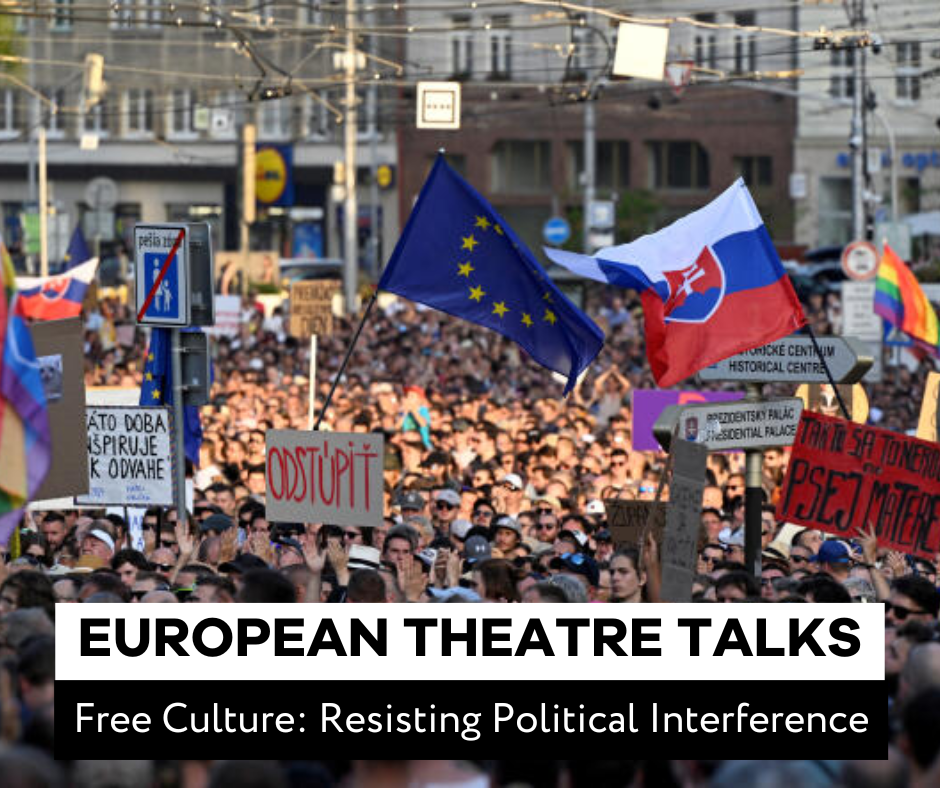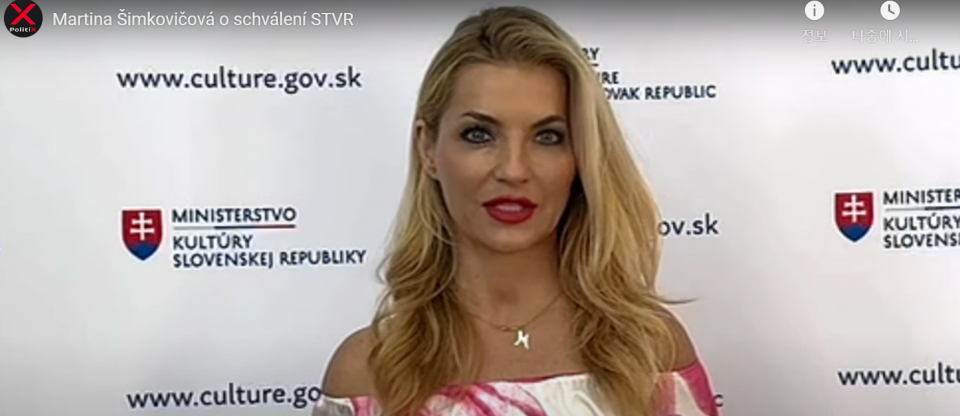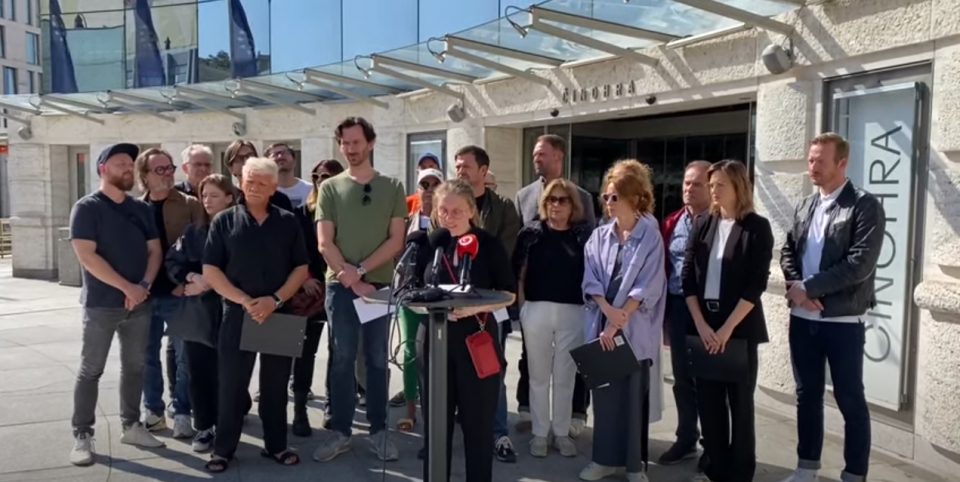
[더프리뷰=서울] 이종찬 기자 = 유럽연합(EU)의 공공극장 네트워크인 유럽극장연합(The European Theatre Convention, ETC)이 지난 9월 24일(현지시각) 정치인들에게 예술가들의 표현의 자유를 충분히 보호하라는 강력한 내용의 공동성명을 발표했다.
ETC는 공공자금으로 운영되는 유럽 극장들의 최대 네트워크로 지난 1988년 창설됐으며 베를린에 본부를 두고 있다. 2023년 11월 기준으로 31개국 63개 극장이 가입해 있으며 유럽위원회(European Commission, EC)로부터 일부 자금을 받아 운영된다. ETC는 유럽 극장들의 ‘대화, 민주주의 및 상호교류를 위한 국제 네트워킹’ 플랫폼으로 현재 총괄감독은 하이디 와일리(Heidi Wiley)가 맡고 있다.
유럽문화행동기구(Culture Action Europe*, CAE)의 이름으로 발표된 이번 성명은 ETC와 그 회원 극장들이 유럽 내의 정치적 간섭에 저항하기 위한 구체적 행동을 실행하는 과정에서 발표된 것으로, 최근 몇몇 국가에서 벌어진 극우 정부의 문화예술 정책과 관련있는 것으로 보인다.
Culture Action Europe* - 지속가능한 예술을 위한 유럽의 문화단체, 개인 예술가들의 네트워크
지난 8월 슬로바키아 국립극장의 감독 마테이 드를리츠카(Matej Drlička)가 갑자기 해임됐다. 앵커 출신인 극우 성향의 신임 문화부장관 마르티나 심코비초바(Martina Šimkovičová)는 해고 이유에 대해 “우리 성악가들보다 외국 성악가를 선호하기 때문”과 같은 납득하기 어려운 이유들을 열거했다.

무려 1만8천여 명이 시위에 나서면서 많은 공연이 취소됐고 심코비초바 장관은 “예술가들이 다른 일정이 있어 공연이 취소됐다”고 해명했다. 전임 감독 드를리츠카는 이에 대해 옵저버(Observer)지와의 인터뷰에서 “완전히 거짓말”이라며 진짜 이유는 “정부가 예술을 자유롭게 두길 원치 않기 때문”이라고 반박했다.

또한 오스트리아에서는 극우 포퓰리스트 정당인 오스트리아 자유당(Freiheitliche Partei Österreichs, FPÖ)이 9월 29일 의회 선거에서 승리할 경우 빈 민중극장(Volkstheater Wien)의 이름을 독일 민중극장(Deutsches Volkstheater)으로 개명할 것이라고 예고해 이에 항의하는 풍자 시위가 벌어지고 있다.
빈 민중극장 감독 카이 포게스(Kay Voges)는 오스트리아 자유당의 한 프로그램 안내문에서 “오스트리아의 언어, 문화, 역사는 독일의 것”이라는 문장을 발견했다고 한다. 헤르베르트 키클(Herbert Kickl) 현 자유당 대표는 지난 8월 선거 캠페인에서 자유당의 정치지도 원리는 ‘균질성의 실현’이라고 밝힌 바 있다. 오스트리아 예술인들은 키클 대표의 이같은 독일과의 근연성 강조에 불안감을 느끼고 있으며 ‘The Hitlers'라는 이름의 그룹은 이를 풍자하는 노래와 뮤직비디오를 선보이고 있다. 총선을 목전에 둔 지금 오스트리아 자유당은 지지율 1위를 달리고 있다.
키클 자유당 대표는 지난 7월 헝가리의 오르반 빅토르 총리, 체코의 안드레이 바비시 긍정당 대표와 함께 극우 노선 연대체인 '유럽을 위한 애국자들' 창설 계획을 밝히기도 했다. 이들의 공통분모는 반EU, 반이민 정책으로 극우 정당의 확장은 유럽의 전반적 흐름으로 보인다.
한편 ETC는 오는 11월 4일 벨기에 리에주에서 ‘자유문화: 정치적 간섭에 저항하기’라는 제목으로 좌담을 진행한다. 이 행사에는 슬로바키아 국립극장 예술감독 미리암 키치노바, 오스트리아 빈 민중극장 감독 카이 보게스, 그리고 빈 자유공화국 의회 의원인 파리바 모슬레가 소개하는 빈 페스티벌의 '저항의 지금' 투어 프로젝트가 포함된다.
아래는 ETC의 성명서 전문.
성명서: 예술의 자유와 자율성에 대한 촉구
유럽문화행동기구(Culture Action Europe, 이하 CAE)는 오늘, 2024년 9월 24일, 네트워크 회의를 소집했다. 이 성명서를 발표하게 된 이유는 문화 부문에 현저하게 나타나는 공통된 우려 때문이다.
우리는 CAE의 회원으로서 유럽 전역의 문화단체들에 대한 정부의 정치적 개입이 증가하는 데 따른 우리의 깊어지는 우려를 표명하고자 한다. 우리는 예술과 매체의 표현의 자유를 보장하기 위한 유럽연합의 노력을 인정하며 또한 유럽 인권헌장의 제11조 및 제13조와 이러한 기본인권을 보호하기 위한 유럽연합조약의 제2조를 요청하는 바이다. 이에 따라 우리는 현재 몇몇 유럽 국가에서 나타나고 있는 예술 및 표현의 자유, 그리고 기관의 자율성에 가해지는 많은 터무니없는 제약들에 대해 강력히 규탄하는 바이다.
'창조의 맥박(Creative Pulse)' 설문조사 결과는 응답자의 34%가 예술적 표현의 제한 때문에 상당히, 혹은 어느 정도 영향을 받았음을 보여준다.
예술의 자유와 자율성은 반민주적 정치 및 사회 운동 뿐 아니라 정당으로부터도 점차 압박을 받고 있다. 극우 정당의 발호와 예술적 자유에 대한 최근의 제약 사례에 비추어 검열이 기본장치로서 점차 증가할 것으로 예상되는 바, 우리는 이를 단호히 거부한다.
유럽 인권헌장 제11조 및 13조에 따라, 그리고 인간의 존엄, 자유, 민주주의, 평등, 법치주의 및 유럽연합 조약 2조에 명시된 인권을 고려하여, 우리는 유럽의 기관들이 예술 표현의 자유를 보호하기 위한 조처를 취할 것을 요청한다.
우리는 유럽의 기관들이 모든 예술표현의 자유를 연례 법치보고서(Rule of Law report)에 구체화하고 유럽 감시기구를 통해 지원받을 수 있기를 촉구한다. 우리는 유럽에서의 예술적 자유의 상황에 대한 심도있는 조사가 이루어질 것과 예술가들이 검열이나 정치적 간섭 혹은 위협으로부터 보호 받으며 창작할 수 있는 정책의 채택을 요구한다.
우리는 유럽연합의 모든 회원국이 예술표현의 자유를 보호, 증진할 책임을 다하고, 공적 자금으로 운영되는 기관들의 예술적 자율성을 보장해 줄 것을 촉구한다. 우리는 예술적 자유를 인간이 도전에 대처하고 비판적으로 사고하며 혁신하고 창조하는 인간 능력의 토대임을 인정하는 유럽연합의 문화업무계획 2023-2026의 지침을 회원국들이 준수할 것을 촉구한다.
예술교육을 포함한 유럽 전역의 문화기관들은 민주주의 가치에 대한 중요한 옹호자이자 다원주의적 사회의 투사들이며 바로 이것이 그들의 이상에 반대하는 세력들에게 핵심 표적이 되는 이유이다. 문화공간들이 위협과 정치적 간섭에 대항하는 개방적이고 민주적인 터전으로서 지속적으로 작동하는 것은 필수적이다. 이는 문화기관들의 조직의 자율성이 보호되고 정책입안자들이 공공자금을 수단으로 하는 기관의 과도한 도구화를 피할 수 있을 때만 가능하다.
이는 또한 2024-2029 차기 유럽집행위원회 정치지침과 2024-2029 유럽전략의제가 강조한 유럽의 가치와 자유를 보호한다는 공약과도 궤를 같이 한다.
Culture Action Europe을 대표하여.
STATEMENT: Call for Artistic Freedom and Autonomy of the Arts
Today, 24 September 2024, Culture Action Europe convened a meeting of Networks. This main common concern of the Culture sector encourages us to present you with this statement.
As members of Culture Action Europe, we would like to express our growing concern over the increasing political intervention by governments in the work of cultural organisations across Europe. We acknowledge efforts of the EU to ensure freedom of expression for arts and media, and call upon Articles 11 and 13 of the European Charter of Human Rights and Article 2 of the Treaty of the European Union to safeguard this basic human right. We therefore strongly condemn the many egregious restrictions on artistic freedom, freedom of expression, and organisational autonomy, a trend that is gaining traction in several European countries.
34% of respondents in the 'Creative Pulse' survey indicated that they have been either significantly or somewhat affected by limitations on their freedom of artistic expression.
Freedom of artistic expression and artistic autonomy are increasingly under pressure from political parties, as well as anti-democratic political and social movements. In light of the rise of far-right parties and recent instances of constraints on artistic freedom, we anticipate a growing use of censorship as a default mechanism, which we unequivocally reject.
In accordance with Articles 11 and 13 of the European Charter of Human Rights, and reflecting the values of respect for human dignity, freedom, democracy, equality, the rule of law, and human rights, as outlined in Article 2 of the Treaty on the European Union, we call upon European institutions to take action to safeguard the freedom of artistic expression.
We urge the European institutions to incorporate aspects of the freedom of artistic expression into its annual Rule of Law report, supported through a European observatory on the freedom of artistic expression. We call for further research on the state of artistic freedom in Europe and the adoption of measures to protect and safeguard artists' ability to create without censorship, political interference, or intimidation.
We call on all EU Member States to fulfil their responsibility to protect and promote freedom of artistic expression and safeguard the artistic autonomy of publicly funded institutions. We urge Member States to adhere to the guiding principles of the EU's Work Plan for Culture 2023-2026, which recognises artistic freedom as fundamental to the human ability to address challenges, think critically, innovate and invent.
Cultural institutions across Europe, including arts education, are crucial defenders of democratic values and champions of a pluralistic society, which makes them key targets for those who oppose these ideals. It is vital to ensure that cultural spaces can continue to operate as open and democratic environments that resist intimidation and political interference. This can only be done if the organisational autonomy of cultural institutions is safeguarded and over-instrumentalisation of public funding instruments by policymakers is avoided.
This would also align with the commitment outlined in the political guidelines for the next European Commission 2024-2029 and the EU Strategic Agenda 2024-2029, both of which emphasise the need to protect European values and freedoms.
On behalf of
Culture Action Europe

